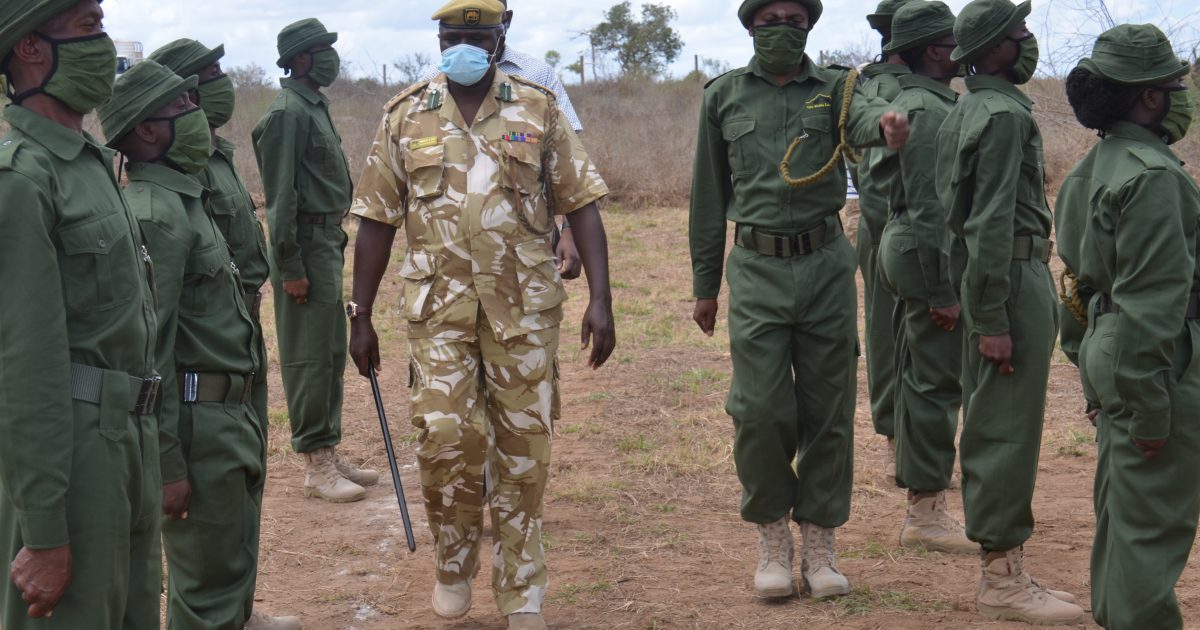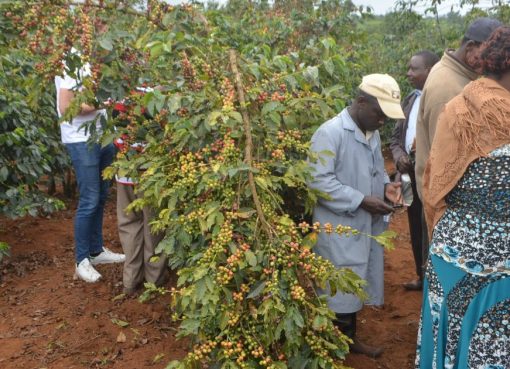Ranches in Taita-Taveta County are setting up a Joint Operations Center (JOC) to enhance rapid response in handling potential threats in the ranches, including dangers posed by wildfires and illegal herders.
The state-of-the-art center will be set up on a ten-acre land in Kasighau Ranch in Voi sub-county.
It will primarily be used to coordinate security and emergency operational issues for 29 ranches that fall under Taita-Taveta Wildlife Conservancy Association (TTWCA). The ranches cover over one million acres of rangelands in the county.
Mr. Bong’osa Mcharo, chairperson for TTWCA, said the center would be a big boost to streamlining the activities in the ranches especially towards handling security matters that have been a challenge.
Mr. Mcharo was speaking on Saturday at Taita Ranch Company in Voi during a pass-out parade ceremony for a dozen community rangers. The rangers were trained by specialists from Kenya Wildlife Service (KWS) and Africa Wildlife Foundation.
“The center will be a nexus where all joint operational activities that touch on welfare of all our conservancies will be coordinated from,” he said.
He noted that individual ranches reported many challenges in handling emerging crises like recurrent wildfires, poaching and massive influx of illegal herders who depleted pastures and water.
He added the JOC will be used to mobilize resources and personnel to tackle any challenge reported by ranches. He cited the incidences of fires that have been erupting in ranches noting that proper and streamlined resource mobilization would enhance timely responsiveness to such disasters.
Already, a donor has been found for the project. “When wildfires are reported, resources from other ranches will be mobilized to help the ranch in distress. This is the essence of the center,” he said.
Mr. Donald Mombo, training coordinator for community rangers, said the center will also ensure uniformity in training for rangers, capacity building and skill enhancement for staff providing security for the ranches.
Noting that most challenges reported by ranches were cross-cutting, he said such issues needed a common approach for better results. He cited drought, illegal grazers, wildfires and sporadic bouts of poaching as some of the challenges facing many ranches in the region.
“We all encounter such incidences from time to time. A singular command center will redirect all efforts towards handling a problem in a ranch that needs help,” he said.
In the past, most ranches relied on their internal resources or the goodwill of ranches to handle crises. This approach often created inordinate delays due to ranches’ disparities in terms of personnel, resources and expertise. The center is expected to sort out such issues and promote modern conservation practices.
Mr. Emmanuel Koech, KWS security operative in Tsavo, hailed the move terming it timely. He noted that KWS was partnering with the ranches to train community rangers as part of promoting conservation in the ranches.
Mr. Koech commended the ranches for embracing the conservancy’s model of land use stating that it was a sure way of diversifying revenue streams.
“This is the way to go. KWS will partner with conservancies to ensure rangers know their roles and act according to the stipulated laws,” he said.
He advised the community rangers to adhere to the code of ethics of conservation in their work. Amongst the skills the rangers were trained on include military drills, snake-bites treatment, wildlife crimes and law enforcement and data collection.
The graduation of the dozen rangers at the 96,000-acre Taita Ranching Company comes at a time the conservancies in the region have started an aggressive drive to modernize their activities. A fortnight ago, 50 community rangers from 8 ranches graduated at Kasighau ranch. Wildlife Works at Rukinga Ranch has 103 community wardens who cover 14 ranches under the company.
Mr. Koech predicted that in the next five years, the transformation in the ranches will be phenomenal as he called for implementation of land-use plans.
The conservancies hope to benefit from one billion shillings set aside by the government to rejuvenate the tourism sector. Under the tourism pillar of the Covid-19 stimulus program, the government set aside Sh 1 billion for engaging 5,500 community rangers under the Kenya Wildlife Service (KWS).
There is also an additional one billion towards supporting 160 community conservancies to mitigate against the effects of Covid-19.
By Wagema Mwangi




